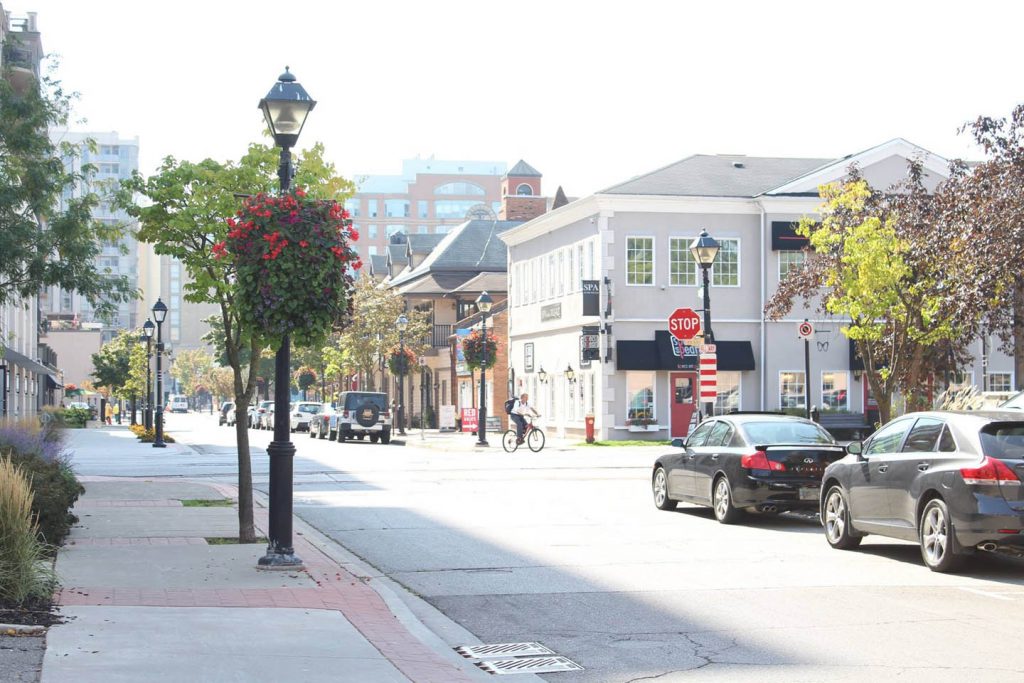
How Digital Main Street is future-proofing Burlington’s retail sector
Main street businesses couldn’t matter more to the city of Burlington. “We actually have the highest retail concentration in Ontario,” explains Andrew Elliston, manager of business development at Burlington Economic Development Corporation (BEDC). So when COVID-19 hit, supporting that vital economic driver for the region was paramount.
Elliston worked with Claire Green, manager, marketing and attraction for Burlington Economic Development to mobilize Digital Main Street for the region. The program combines grants and one-to-one support from the Province of Ontario alongside partners like Google to help main street businesses strengthen their online capabilities and plan for the digital future. Elliston and Green ran a Digital Service Squad of two.
Green says the program couldn’t have come at a better time. “When you look at retail and small business before COVID, there was an urgency but there wasn’t a requirement to get online,” she says. Small businesses had this general understanding that it had to be something in their peripheral, but there really wasn’t a push to start. “The idea of managing social media profiles was probably immensely overwhelming for them… they’re only one person,” she says. “What COVID 19 did was brought it all to the forefront very quickly and created this immense urgency and requirement for businesses to get online to survive.”
It’s become about more than just having a Google My Business profile and being able to be found online, says Green (though she says that’s a good start). Social media and e-commerce have been a lifeline for main street businesses. “In order for (curbside pickup) to really work, businesses needed a website that functioned and had all of their products and everything sort of viewable online,” she says.
And while main street businesses were experimenting with digital tools, Green says it was also new territory for economic development corporations like Burlington’s to engage so heavily in economic recovery. Especially at such a hands-on level. “Our mandate is to attract new investment to Burlington (and help) new companies locate or expand while also supporting our existing business base,” says Green.
Prior to COVID-19 retail and small business was mostly served by the Downtown Burlington Business Association, the Halton Region Small Business Centre and the Chamber of Commerce. “We weren’t in that game too much in terms of retail/small business,” says Green. “COVID-19 completely changed that for us in terms of economic recovery and doing hard work around how are we supporting small businesses in the hardest-hit sectors which we know are small businesses, retail, and hospitality services.”
The work paid off: Burlington’s Digital Main Street program worked with over 200 businesses. Elliston sees it as a momentum builder. “We had such great success in the program,” he says. “We’re debating using some of our own money to keep the digital services going for a bit.”
Written by Andrew Seale
Digital Main Street a été créé par la Toronto Association of Business Improvement Areas (TABIA) avec le soutien direct de la Ville de Toronto. DMS est également soutenu par un groupe de partenaires commerciaux stratégiques, dont Google, Mastercard, Shopify, Meta, Intuit QuickBooks, Square, Lightspeed, Ebay et Postes Canada.
A $42.5-million investment from FedDev Ontario brought together the Toronto Association of Business Improvement Areas, Communitech, Invest Ottawa and the Ontario Business Improvement Area Association to expand the Digital Main Street Platform in order to support more businesses going digital as a response to the impacts of COVID-19 in Southern Ontario.
